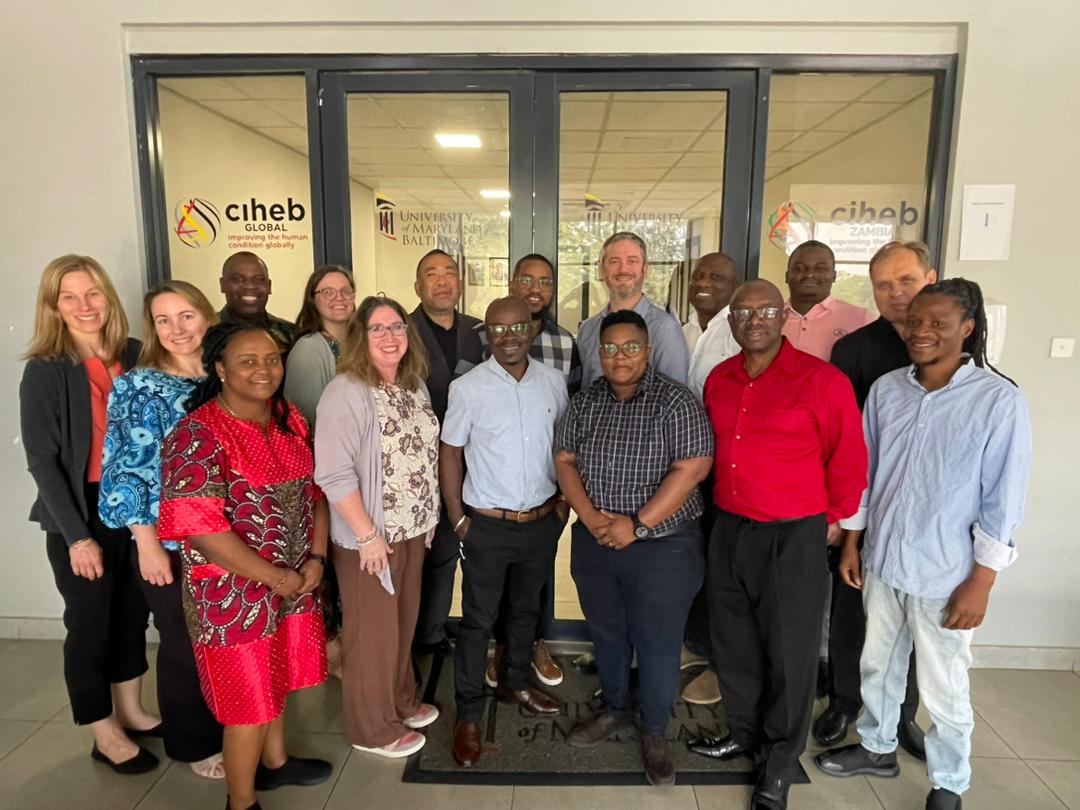FSU College of Nursing Leads Groundbreaking HIV Prevention Project in Sub-Saharan Africa

Dr. Lisa Hightow-Weidman, a Distinguished and Endowed McKenzie Professor, Interim Associate Dean for Research in the FSU College of Nursing, and Founding Director of the Institute on Digital Health and Innovation (IDHI), alongside IDHI Associate Director and College of Nursing Professor Kathryn Muessig, recently embarked on a significant mission to Lusaka, Zambia, as part of a newly-funded National Institutes of Health (NIH) project known as the RISE study.
The RISE project, part of the NIH’s PATC3H Consortium, is focused on expanding HIV prevention and care services for adolescents and young adults in resource-limited settings of sub-Saharan Africa. This initiative represents a significant step forward in addressing the unique healthcare needs of communities in the region.
The RISE intervention, the first of its kind in Sub-Saharan Africa for adolescents, will use the HealthMpowerment smartphone intervention platform created by Dr. Hightow-Weidman. This innovative approach combines digital health tools with strong community outreach and service efforts to increase the uptake and maintenance of HIV Pre-Exposure Prophylaxis (PrEP) and HIV antiretroviral medication adherence.
The RISE study is a collaborative effort between the University of Maryland, Baltimore, led by Manhattan Charurat and Sylvia Adebajo, and FSU, led by Dr. Lisa Hightow-Weidman, along with partner organizations in four African countries: CIHEB Zambia, Institute of Human Virology, and Centre for Population Health Initiatives (Nigeria), Partners for Health and Development in Africa (Kenya), and Centre for the Development of People (Malawi), as well as local government leaders and community-based service providers in each partnering country.
During their recent visit to Lusaka, Dr. Hightow-Weidman and Dr. Muessig participated in site visits to community-based health clinics and community service centers in the areas surrounding Lusaka. These visits allowed them to interact with community members and leaders, who shared their experiences and identified vital health topics, including mental health, social support, and the ability to access tailored health and medical information via smartphones.
As for the project’s plans, Dr. Hightow-Weidman shared, “The project has just started and is currently funded for five years. During the first year, the team builds partnerships, creates the research protocol and intervention content, secures regulatory approvals, and hires and trains team members and staff. The middle three years are focused on implementing the study across the partner countries, and the final year is focused on analyzing and disseminating the study results. We aim to focus on relationship and capacity building as well as communications and dissemination of information throughout the full study period to maximize the project’s reach and impact.”
When asked about their motivations and what excites them most about this project, Dr. Hightow-Weidman and Dr. Muessig both expressed their passion for working in the field of HIV prevention and care. With a combined experience of over 35 years, they are thrilled that the Institute on Digital Health and Innovation, the College of Nursing, and FSU have the opportunity to expand their impact in increasing access to services and tailored information for this community globally.
They also highlighted the unique approach of the RISE project, which combines in-person interactions, digital health tools, and strong community and clinic partnerships. The intervention takes a “status-neutral” approach to HIV prevention and care, providing a range of resources, tools, and information for a more holistic approach to health and wellness among populations impacted by HIV.
The RISE study represents a significant step forward in the fight against HIV in sub-Saharan Africa, offering hope and innovative solutions to communities that need them the most. Dr. Hightow-Weidman and Dr. Muessig’s commitment to this endeavor is poised to impact the lives of adolescents and young adults in the region.
